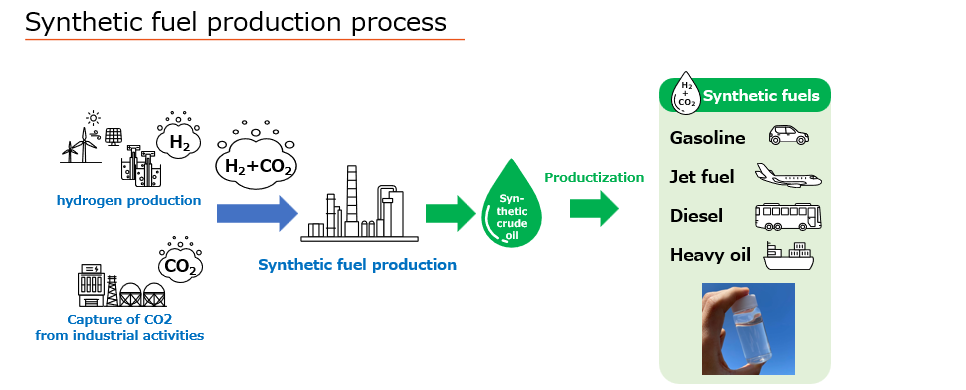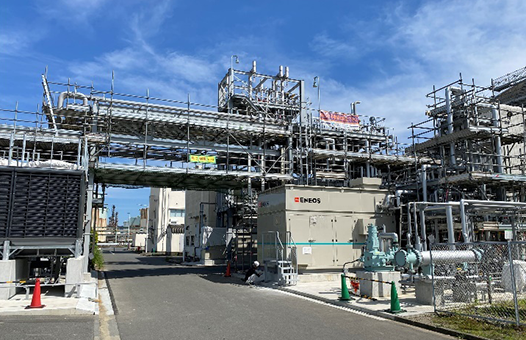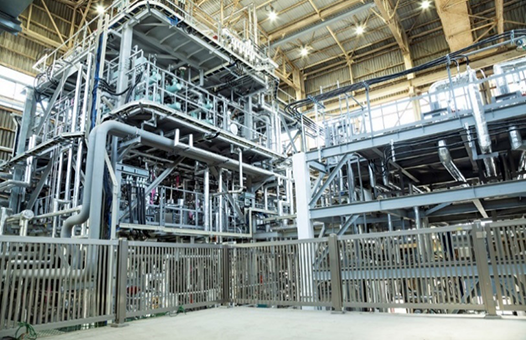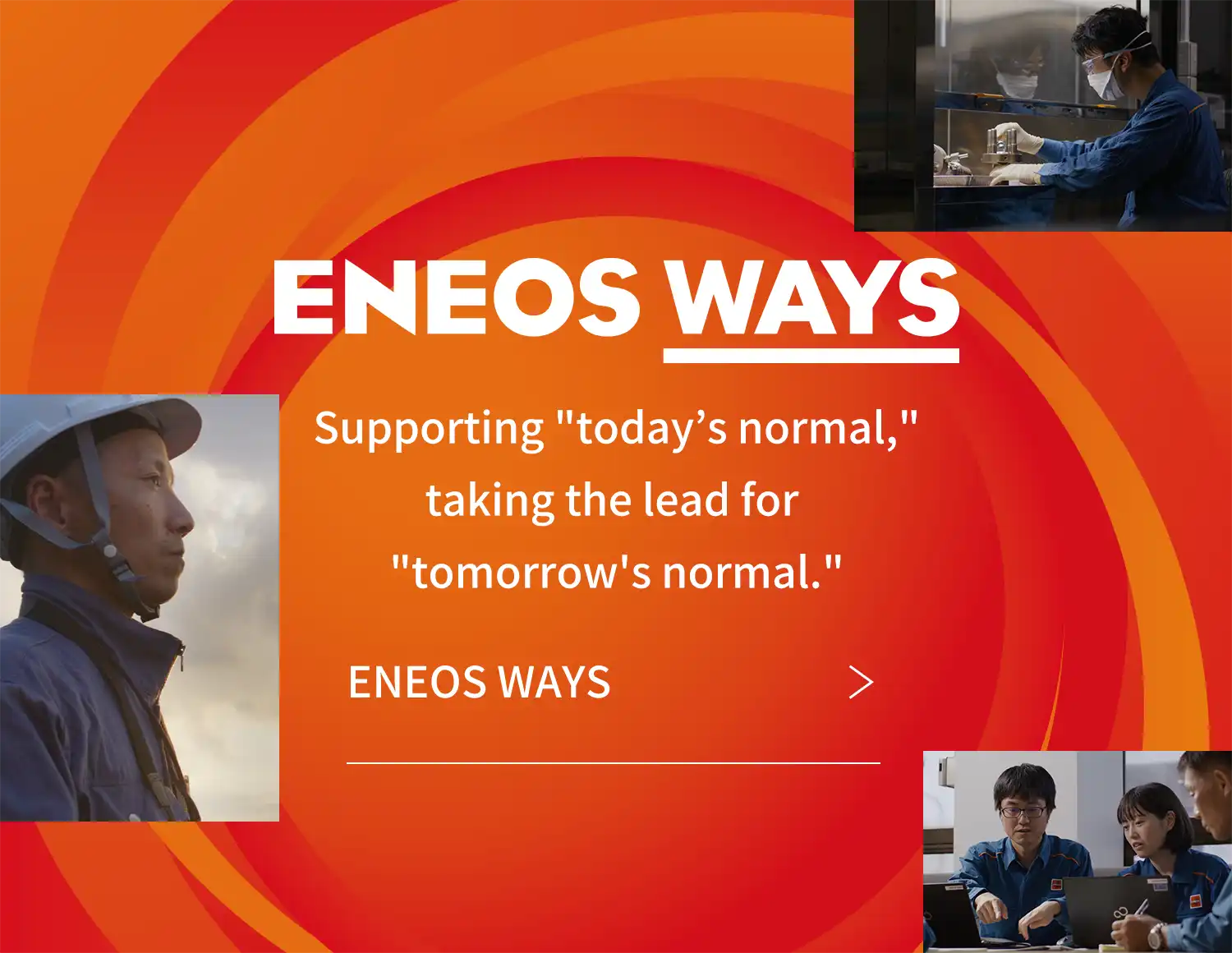Aiming for the Early Social Implementation of Synthetic Fuels
We are working on developing technologies to produce synthetic fuels that can replace existing petroleum products like gasoline, jet fuel, diesel, etc. to achieve carbon neutrality in a wide range of fields, from mobility such as in aviation, automobiles, and marine transport, to feedstocks for chemicals and lubricants.
Synthetic fuels include renewable energy-based synthetic fuels (RE-based synthetic fuels) and biomass-based synthetic fuels (bio-based synthetic fuels). The former are produced from CO2 captured from industrial exhaust gases and/or the atmosphere and from hydrogen derived from renewable energy sources, while the latter are produced from synthesis gas obtained by gasifying biomass.Synthetic fuels can suppress CO2 emissions throughout the entire product lifecycle, thereby contribute to reducing greenhouse gas emissions in society.
The ENEOS Group aims for the early establishment of synthetic fuels production technology and their social implementation with the support of the Green Innovation Fund (GI Fund),*1 which selected this project in April 2022.
A project whereby the government will support enterprises engaged in management issues towards becoming carbon neutrality by 2050, which Japan has declared as a goal, for a period of ten years, covering from research and development and demonstration to social implementation. It covers energy-related industries including hydrogen and fuel ammonia industries, transport and manufacturing-related industries, and household and office-related industries.
Business Policies
- Technology demonstration at a demonstration plant*2.
- Commercialization study and early implementation of synthetic fuels
- Establishment of highly efficient and large-scale production technologies
Demonstration plant that capable of producing one barrel per day
Main Initiatives
Development of Production Technologies for Synthetic Fuels
The ENEOS Group is aiming for the early establishment of technologies for our proprietary process for producing synthetic fuels with high efficiency. We are promoting the development of diverse liquid fuel production processes, including for jet fuel and diesel by utilizing the technologies cultivated by the JAPAN-GTL Consortium,*3 of which we were once a member.
A consortium established by six companies in October 2006. The participating companies were Japan Petroleum Exploration, Chiyoda Corporation, Cosmo Oil, NIPPON STEEL & SUMIKIN ENGINEERING, Teikoku Oil and INPEX, and Nippon Oil (all company names are as of establishment date). The demonstration operation of 500 barrels per day between 2009 and 2011 was carried out as a joint research project between the Consortium and the Japan Organization for Metals and Energy Security (JOGMEC), establishing GTL technologies that could be used on a commercial scale.

Commencement of operation of the synthetic fuel demonstration plant
The ENEOS group has been working on the development toward the commercialization of synthetic fuels, in step with a roadmap framed by the Japanese government, starting with beginning scale-up demonstrations in FY2022. In September 2024, the demonstration plant for synthetic fuel production commenced demonstration operations.
The fuels produced were being provided to shuttle buses (diesel oil) and vehicles (gasoline) for guests and related parties during the Expo 2025 Osaka, Kansai, Japan event period.
Going forward, we will leverage the development achievements from GI Fund projects to advance commercialization studies aimed at the early societal implementation of more economically viable bio-based synthetic fuels.
We aim to realize the production of environmentally friendly synthetic fuels in the near future.


Related Information

Petroleum Products Business
Taking on the challenge of achieving both a stable supply of energy and materials and the realization of a carbon-neutral society.

Renewable Energy Business
We contribute to the realization of a decarbonized society through the development and operation of renewable energy power plants.



